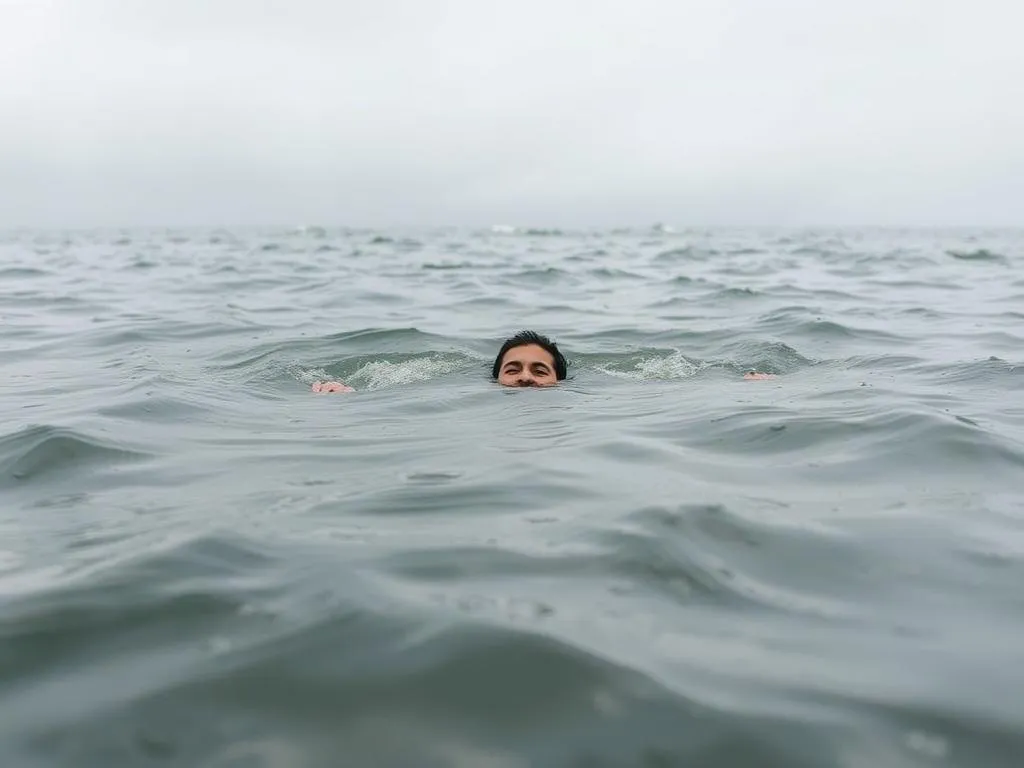Dream About Drowning Dream Meaning: Exploring the Depths of Your Subconscious

Dreams can often feel like a mysterious window into our subconscious, revealing our deepest fears, desires, and anxieties. One particularly unsettling dream is that of drowning, which can leave you feeling anxious and confused upon waking. Understanding the dream about drowning dream meaning can provide valuable insights into your emotional state and personal experiences. In this blog post, we will delve into the symbolism behind drowning dreams, exploring various interpretations and what they might mean for you.
Recognizing the importance of our dreams, especially those that evoke strong emotions, can open the door to personal growth and self-awareness. Drowning dreams might represent feelings of being overwhelmed or stressed in waking life. By examining these dreams closely, we can uncover the underlying issues and work towards resolving them. So, let’s dive into the depths of this common dream and see what it might reveal about your waking life.
Understanding Drowning Dreams
The Symbolism of Water in Dreams
Water is a powerful symbol in dreams and often represents emotions, the subconscious, and the fluidity of life. When you dream about drowning, water can symbolize a range of emotions, from anxiety and fear to overwhelming joy or love. In many cases, the state of the water can also provide additional context. For instance, calm waters might suggest tranquility, while turbulent waters could indicate chaos or emotional turmoil.
Common Themes in Drowning Dreams
Drowning dreams can manifest in various ways, and each scenario can have its unique implications. Here are some common themes:
-
Feeling Overwhelmed: If you find yourself struggling to stay afloat in your dream, it could suggest that you feel overwhelmed by life’s challenges. This might mean that stress from work, relationships, or personal issues is weighing heavily on you.
-
Fear of Losing Control: Dreams of drowning often represent a fear of losing control, either over your emotions or your life circumstances. This loss of control can stem from significant changes or challenges you are facing.
-
Repressed Emotions: Drowning may also symbolize repressed emotions that are coming to the surface. If you are avoiding dealing with certain feelings, this dream might urge you to confront them.
-
Transition and Change: Water can also signify transitions and changes in life. Drowning might indicate that you are struggling to navigate these changes, feeling as though you are being swept away.
The Psychological Perspective
Freudian Interpretation
From a Freudian perspective, dreams about drowning might be linked to feelings of guilt or a fear of failure. Sigmund Freud believed that dreams are a reflection of our repressed desires and emotions. Drowning could symbolize the fear of being overwhelmed by these unacknowledged feelings, often rooted in childhood experiences or unresolved issues.
Jungian Perspective
Carl Jung, on the other hand, might interpret drowning dreams as a confrontation with the shadow self—the parts of ourselves that we often ignore or suppress. In this view, drowning could represent a need to integrate these hidden aspects of ourselves into our conscious awareness. By facing these emotions, we can achieve greater self-acceptance and personal growth.
Personal Experiences and Context
Individual Circumstances Matter
While we can draw on general interpretations of drowning dreams, it’s crucial to consider your personal circumstances. The meaning of your dream might vary based on your unique emotional state, experiences, and challenges. Reflect on your life and try to identify any specific events or feelings that might relate to the dream. This approach can help you gain a clearer understanding of what your subconscious is trying to communicate.
Journaling Your Dreams
Keeping a dream journal can be an effective way to track your dreams and identify patterns. Write down your drowning dreams, including details about the water, your feelings during the dream, and any significant events in your life at the time. Over time, you might notice connections that can shed light on the dream about drowning dream meaning specific to you.
Cultural Interpretations of Drowning Dreams
Different Cultures, Different Meanings
Cultural context can also play a role in how drowning dreams are interpreted. In some cultures, water symbolizes purification and rebirth, so drowning might represent a transformative experience. In others, it may indicate misfortune or a warning sign of potential challenges ahead. Understanding these cultural nuances can provide a broader perspective on the meaning of your dream.
Folklore and Mythology
Throughout history, various folklore and myths have incorporated themes of water and drowning. For example, in some myths, drowning signifies a journey into the unknown or a passage into another realm. These stories often highlight the duality of water as both a source of life and a potential danger, reflecting the complexities of our emotional experiences.
Coping Strategies for Drowning Dreams
Addressing Underlying Issues
If you frequently have drowning dreams and find them distressing, it may be beneficial to address any underlying issues. Consider talking to a therapist or counselor who can help you explore your emotions and experiences. Processing these feelings in a safe environment can provide relief and clarity.
Stress Management Techniques
Additionally, implementing stress management techniques can be effective in reducing the frequency of drowning dreams. Practices such as mindfulness, meditation, and yoga can help you develop a greater sense of control over your emotions and responses to stressors. Creating a calming bedtime routine can also enhance your overall sleep quality.
Conclusion: Key Takeaways
Dreams about drowning can be unsettling, but they also offer valuable insights into your emotional state and subconscious. By exploring the dream about drowning dream meaning, you can uncover the underlying fears and challenges you face in waking life. Remember that these dreams might represent feelings of being overwhelmed, fears of losing control, or repressed emotions.
Engaging with your dreams through journaling and reflection can help you gain a better understanding of your emotional landscape. Whether you approach your dreams from a psychological, cultural, or personal perspective, the key is to remain open to the lessons they have to offer. As you navigate through your waking life, consider how these insights might guide you towards greater self-awareness and emotional resilience.
If you’ve experienced drowning dreams, how did they make you feel? What do you think they might mean for you? Share your thoughts in the comments below—let’s engage in a conversation about the profound world of dreams!







